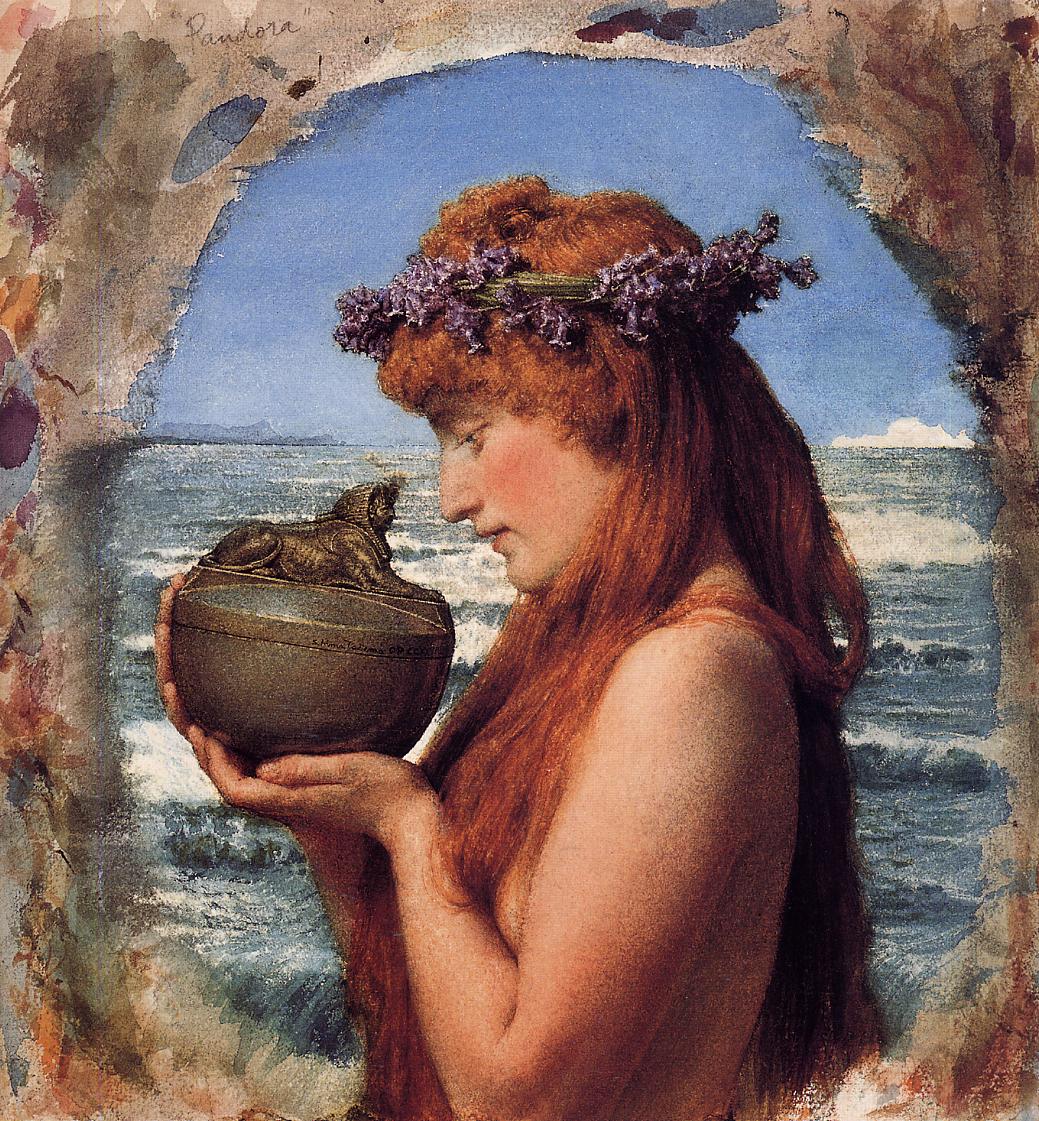Pandora’s Jar

Pandora’s Box is one of the most referenced pieces of mythology seen in western culture today. The box metaphor is used in a variety of ways, including to indicate something precious or problems-ridden. Personally, I see references to this myth in society through the Pandora jewelry company as well as a chocolate brand also named after Pandora. But where is this myth from and what is the real story behind it?
Pandora was the first woman ever created, according to Greek mythology. But her creation was meant to ultimately punish humans for the titan Prometheus gifting people fire, much to Zeus’s anger. So Zeus made Pandora, which literally means “all-gifted,” and the gods adorned her with gifts in order to form her humanity. These included wisdom, loyalty, and curiosity.
And curiosity would be the ultimate flaw within humans, as displayed by Pandora’s story. The woman was gifted as a wife to the titan Epimetheus, yet he was warned by his brother Prometheus to not accept any gifts from Zeus. Prometheus believed that Zeus’ gifts were most likely secreted punishments to get back at Prometheus for stealing fire for the unworthy humans. Yet Epimetheus was enamored by Pandora, and the two married. As a wedding gift, Zeus gave the new couple a jar (it was not actually a box), yet remembering his brother’s warning, Epimetheus decided to never open the jar, for fear of what it might contain.
Although Pandora also agreed to never open the jar, the curiosity and temptation she was given by Hermes made her desire to know what it contained greater every day. Years went by, and she could no longer contain her temptation, so Pandora opened her jar.
Upon opening, from the jar flew out the evils of the world. Death, War, Starvation, and many others swirled around Pandora and were released onto all humans of the ancient universe. The world became dark, yet when Pandora looked into the seemingly empty jar, she discovered one small source of light inside: Hope.
The myth of Pandora’s Jar is used to show why there are evils in the world and that, even in the times of deepest trouble, hope still exists. Although this story can be quite inspiring for people, I had a different initial reaction to my reading of Pandora’s story, one of feminism.
What I have observed in many mythologies, including the Torah/Old Testament, is ingrained anti-feminist sentiments. For example, in the Book of Genesis, Eve, the equivalent of Pandora for the Jewish and Christian texts, was punished for eating forbidden fruit, which she consumed in pursuit of the knowledge held within the magical food. In Christianity, this story is known as the fall of man and the “original sin.” Essentially, Eve’s desire and curiosity condemned all humans to punishment as a result of Eve’s disobedience of God’s wishes.
To me, Pandora’s story is very similar. And I am beginning to observe a common, anti-feminist theme in these ancient texts where women assume the blame for all the human evils of life. Additionally, as described above, Pandora and women alike, were created as a pawn by the gods for bringing evil into the world. Pandora and Eve were both punished when their curiosity led them to no longer be passive. Drawing conclusions such as these make me wonder: do mythological narratives contribute towards the unequal treatment of women in past and current societies?
One Comment